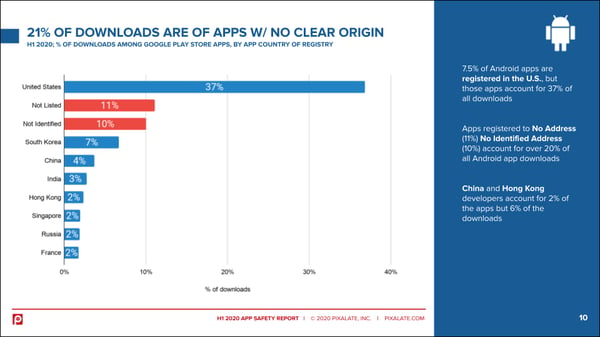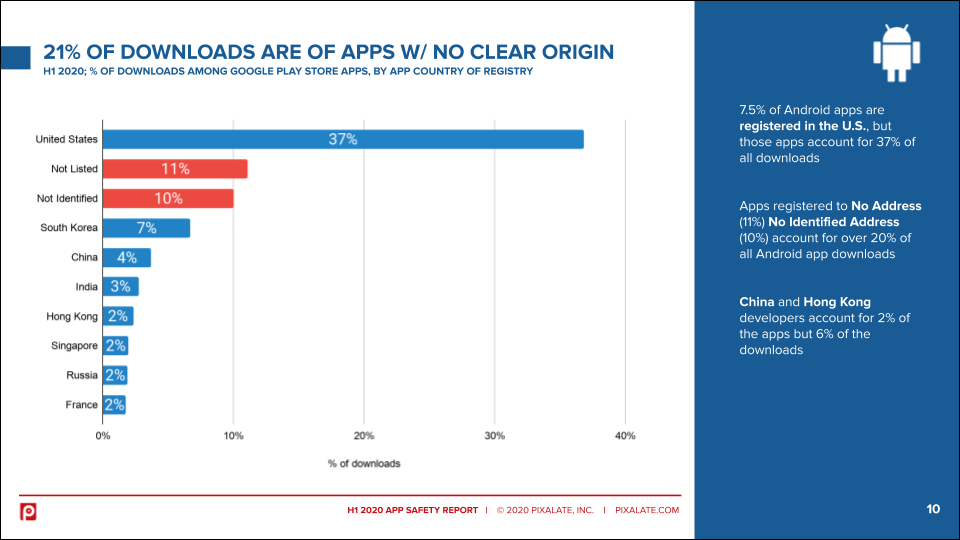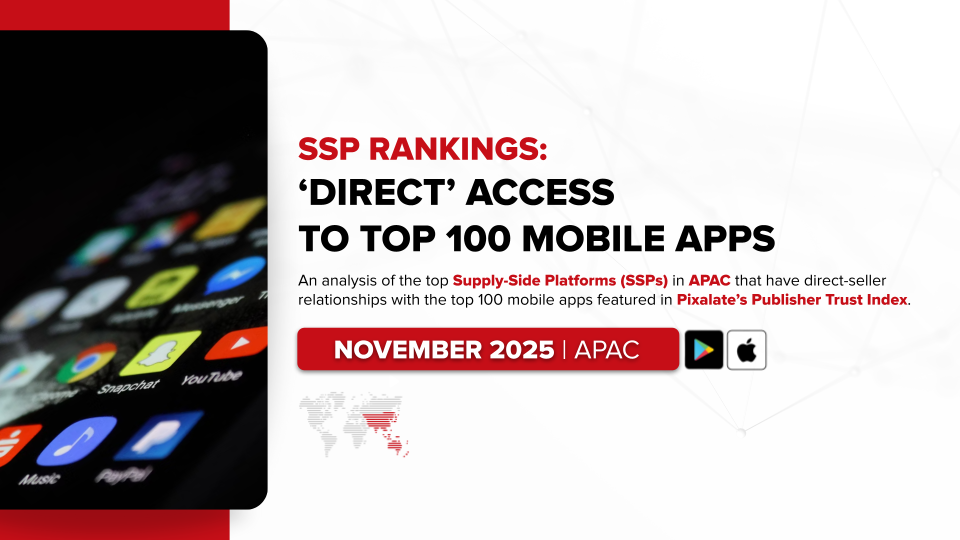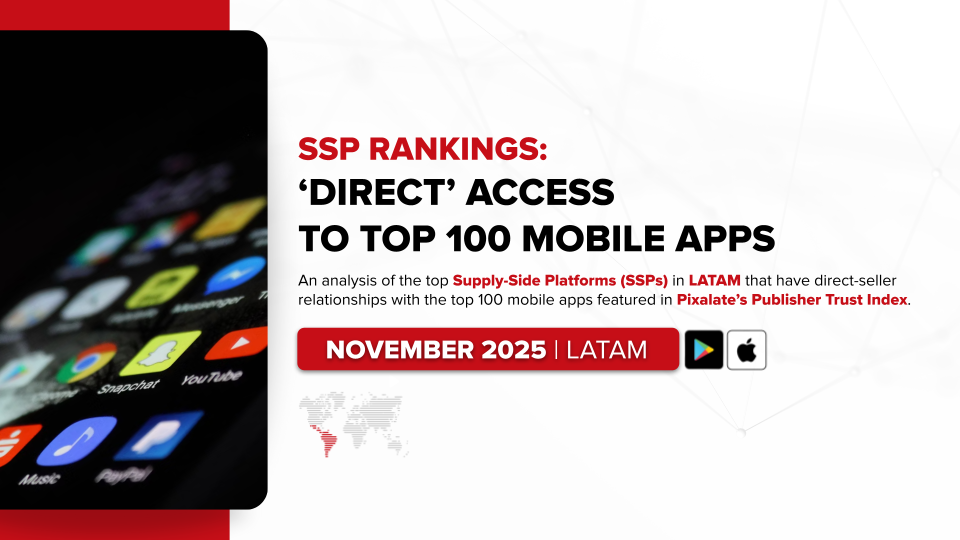Pixalate's Mobile Advertising: App Safety Report (H1 2020) reveals information about the 4.7+ million apps available to consumers across the Google Play and Apple App stores in H1 2020.
This blog examines download data by app address of registry (or lack thereof).
21% of Android downloads are from apps with no clear address of registry

- While 7.5% of Android apps are registered in the U.S., those apps account for 37% the downloads
- Address Not Listed (11%) and Address Not Identified (10%) account for 21% of all Android app downloads
- Apps from China and Hong Kong combine to account for 2% of all apps in the Google Play Store but 6% of the downloads

What’s inside Pixalate’s Mobile Advertising: App Safety Report (H1 2020)
Inside our app safety report, you’ll find:
- App trends across Android & iOS
- Top iOS & Android apps
- App country of registration information
- ‘Dangerous permissions’ among Android apps
- App developers with the most apps
- And more

Disclaimer
The content of this press release, and the H1 2020 Mobile Advertising: App Safety Report (the "Report"), reflect Pixalate's opinions with respect to the factors that Pixalate believes can be useful to the digital media industry. Any proprietary data shared is grounded in Pixalate's proprietary technology and analytics, which Pixalate is continuously evaluating and updating. As cited in the Report and referenced in the Report's key findings reproduced herein, programmatic ad transactions, as measured by Pixalate, are used as a proxy for ad spend. The Report examines U.S. advertising activity. Any references to outside sources in the Report and herein should not be construed as endorsements. Pixalate's opinions are just that, opinions, which means that they are neither facts nor guarantees.
It is important to also note that the mere fact that, for example, an app receives “dangerous permissions” (as defined by Google), appears to be transmitting personal data from the E.U. to countries that have not yet been identified by the European Commission as having adequate privacy safeguards, or is registered in a traditional tax haven country or a country that appears to be receiving heightened scrutiny by U.S. or E.U. governmental bodies does not necessarily mean that such app, or its publisher, is actually exploiting data subjects. Instead, Pixalate is merely rendering an opinion that such facts may be suggestive of heightened risks to data subjects. Pixalate is sharing this data not to impugn the standing or reputation of any entity, person or app, but, instead, to report facts as they pertain to delisted Android and iOS apps.








